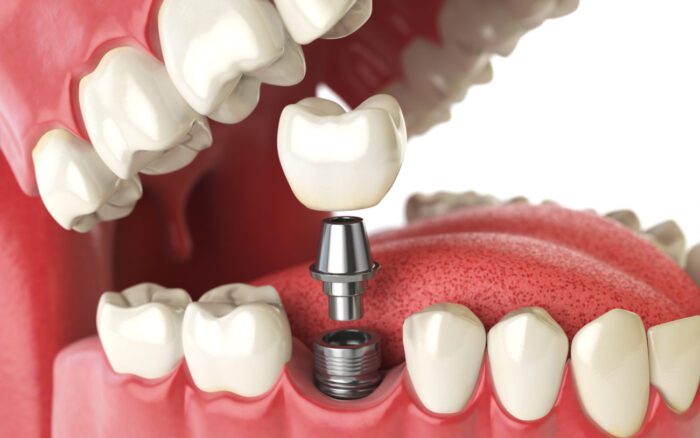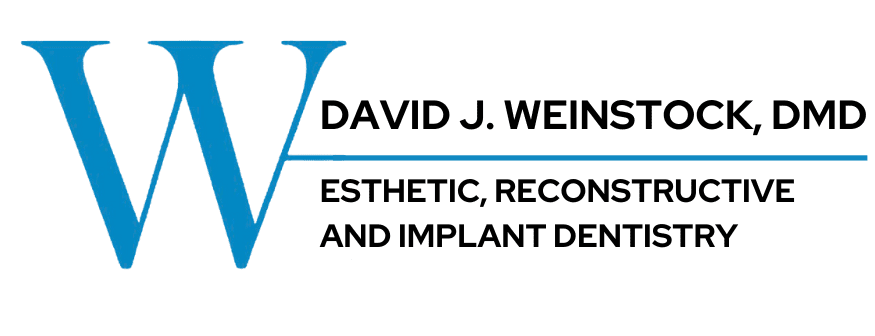Missing teeth are common, but a serious dental health concern. With advances in dental technology, replacing missing teeth is now more successful and natural. Local prosthodontist Dr. David Weinstock offers treatment plans for replacing missing teeth in Philadelphia, PA.
Why should I replace my missing teeth?
Any number of missing teeth can lead to complex oral health concerns if you do not replace them. This could cost you a lot of money in repairs. Missing teeth can compromise the integrity of the bone and may lead to recession of the jawline. Replacing them will stabilize your oral foundation. Missing teeth can also increase your chances of developing gum disease, tooth decay, tooth shifting, and additional tooth loss. Aside from oral health reasons, gaps in your smile will drastically lower a person’s self-confidence and quality of life.
What are the options for replacing missing teeth?
There are several options for replacing missing teeth. However, Dr. Weinstock usually recommends dental implants when possible. Teeth implants can replace one missing tooth or a full arch of missing teeth. Dr. Weinstock provides a range of options for replacing lost teeth to fit all lifestyles, budgets, and cosmetic goals.
Single Tooth Implants
A single tooth dental implant is a permanent solution, Dr. Weinstock may suggest for the replacement of a single missing tooth. This dental restoration comprises a titanium implant post that must be surgically inserted into the jawbone. Here, it mimics a natural tooth root.
After healing, the implant is fused to the bone, and a custom-made dental crown is attached. This restores both function and aesthetics. A single tooth implant prevents adjacent teeth from being compromised, offering a stable, long-lasting solution that feels and functions like a real tooth. To learn more about the benefits of single tooth implants, see Single Dental Implant.
All On Four
The All on Four dental implant technique replaces a full arch of missing teeth. It involves using four strategically placed implant fixtures in the jawbone to maximize bone support. A custom-fabricated fixed denture is then attached to these implants. This dental restoration provides a secure and permanent set of teeth.
Dr. Weinstock will suggest this tooth replacement method for individuals with extensive tooth loss and bone loss. The All-on-Four method offers improved stability, function, and aesthetics compared to traditional dentures and often requires less bone grafting. It can transform smiles and quality of life in a shorter treatment timeline than traditional implant methods. To learn more about the benefits of All-on-Four, see All-on-Four Implants.
Dental Bridge
A dental bridge is a fixed dental restoration that replaces a single missing tooth or several missing teeth in a row. It comprises one or more false teeth, the pontics, and dental crowns hold them in place. The crown portion of the bridge is attached to the adjacent teeth or dental implants. A dental bridge can restore the appearance and function of your smile. Several types of dental bridges are available depending on your needs and the state of your oral health. To learn more about the types of dental bridges we offer, see Dental Bridge.
Dentures and Partials
A denture is a type of dental restoration that replaces missing teeth and some of the surrounding tissues. It consists of false teeth set in a base that looks like gum tissue. We offer both partial and complete dentures. Partial dentures replace a few missing teeth on the arch when several natural teeth remain.
Complete dentures will replace an entire arch of teeth. Either option can be used on the upper or lower jaw. Dentures help to restore form, function, and appearance to improve self-confidence. Regular cleaning and maintenance are essential to prevent plaque buildup and maintain oral hygiene. They provide an accessible solution for tooth replacement without surgical procedures like implants or bridges. To learn more about the benefits of dentures, see Dentures and Partials.
Patient Review
Missing Teeth FAQs
Read through our frequently asked questions section to learn more about missing teeth. Please book a consultation today if you still have further concerns or questions, especially about your replacement options.
Do I have to worry about facial sagging if I have missing teeth?
Facial sagging is a result of missing teeth. It affects older patients more prominently than younger patients. Without teeth, your jawbone starts to deteriorate over time, contributing to facial sagging. This does not happen overnight.
Will missing teeth cause gum disease?
Yes. Missing even one tooth without replacing it can create a huge opportunity for gum disease to take hold. Your gums rely on tooth structure and vice versa to stay healthy. More exposed gum tissue creates an environment for bacteria to take hold.
What is the best treatment for missing teeth?
Every patient is different, so there is no one-size-fits-all treatment for missing teeth. After a thorough dental exam, your dentist can recommend the best course. The most popular treatment for missing teeth is dental implants.
Will my dental insurance cover the cost of tooth replacement?
Dental insurance coverage varies, and it simply depends on the type of coverage you have. Some plans might cover some of the costs, especially for necessary treatments. Most dental insurances will cover at least a portion of the dental restoration. We suggest that you consult your insurance provider and dentist for details.
Is replacing a missing back tooth necessary if it’s not visible when I smile?
Yes, we suggest that you replace your back teeth even if you cannot see them. This will help maintain proper chewing function and prevent your other teeth from shifting out of place.
Will my teeth move if I don’t replace a missing tooth?
When a tooth is missing, the surrounding teeth will move into the gap and shift out of place. This tooth movement can cause misalignment, bite issues, and more tooth loss. Replacing a missing tooth with a dental implant, bridge, or denture will keep your teeth in their natural position and prevent these problems.
Can missing teeth cause bone loss in the jaw?
Yes, missing teeth can cause bone loss in the jaw. When a tooth is missing, the jawbone in that area no longer gets the stimulation it needs to be healthy and strong. Over time, the bone will deteriorate and undergo bone resorption. Replacing missing teeth is key to keeping the jawbone healthy and preventing further complications.
Will missing teeth affect my speech?
Yes, missing teeth can affect your speech. When teeth are missing, it can be hard to pronounce certain words, and speech becomes difficult. The gaps from missing teeth can change how air flows through your mouth and affect your pronunciation. Replacing missing teeth will help restore your speech clarity and confidence in communication.
How do missing teeth affect eating and nutrition?
Missing teeth can vastly impact your ability to eat and, therefore, your nutrition. When teeth are missing, chewing becomes harder, and you may avoid certain foods that are harder to eat. This difficulty with chewing can lead to a restricted diet and missing essential nutrients. Replacing missing teeth is key to a healthy and balanced diet, giving you the nutrition your body needs.

What Are Dental Implants?
A dental implant comprises three parts: the implant post, the abutment, and the prosthetic tooth. The actual implant is a tiny titanium screw like post that is surgically implanted into the jaw and will act as the missing tooth’s root. The implant will stimulate healthy bone growth to avoid jaw shrinkage, which often occurs after tooth loss.
When the implant fuses with the surrounding bone, a small piece called an abutment is attached; this part will support the dental prosthesis. The dental implants are then capped with a dental crown, bridge, or denture for a natural smile. Implants are permanent dental restorations that require no additional maintenance beyond your regular oral hygiene routine.
Dental implants have become the standard in missing tooth replacement for their long-term oral health benefits and high success rate. They are the most natural-looking and advanced solution for replacing missing teeth.
What are the benefits of dental implants?
When forced to deal with the reality of replacing missing teeth, many patients choose dental implants due to their countless benefits over traditional teeth replacement options. Implants fuse with the jawbone and provide unparalleled support for the jaw and bite.
- 98% Success rate
- Natural-looking
- Restores the function of the bite
- Stimulates natural bone regeneration
- Secures bite stability
- Protects surrounding teeth
- Blends seamlessly with natural teeth
Why Choose Dr. David Weinstock to Replace Missing Teeth in Philadelphia, PA?
Prosthodontist Dr. David Weinstock is dedicated to restoring optimum function and aesthetics to your smile with patient-centered dentistry. His experience and natural eye for aesthetics allow him to provide the most natural and comfortable results.
To learn more about how Dr. Weinstock can restore beauty, function, and health to your smile, contact our Bala Cynwyd, PA dentist office today, or schedule your appointment online.
